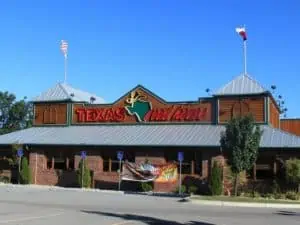Share the post "What to Expect from Your Texas Landlord: An Appliance Guide"
Moving into a new apartment complex can be stressful – you must ensure it has all the necessities on your list, from the number of bedrooms to the location. However, there are some things you shouldn’t need to be worried about. Essential appliances are included with any rental, right? We will discover if landlords provide refrigerators.
According to the Tenant-Landlord law, landlords are not required to provide refrigerators in Texas or any state. Houses or apartments without refrigerators are not considered unlivable, so they are not a legal obligation.
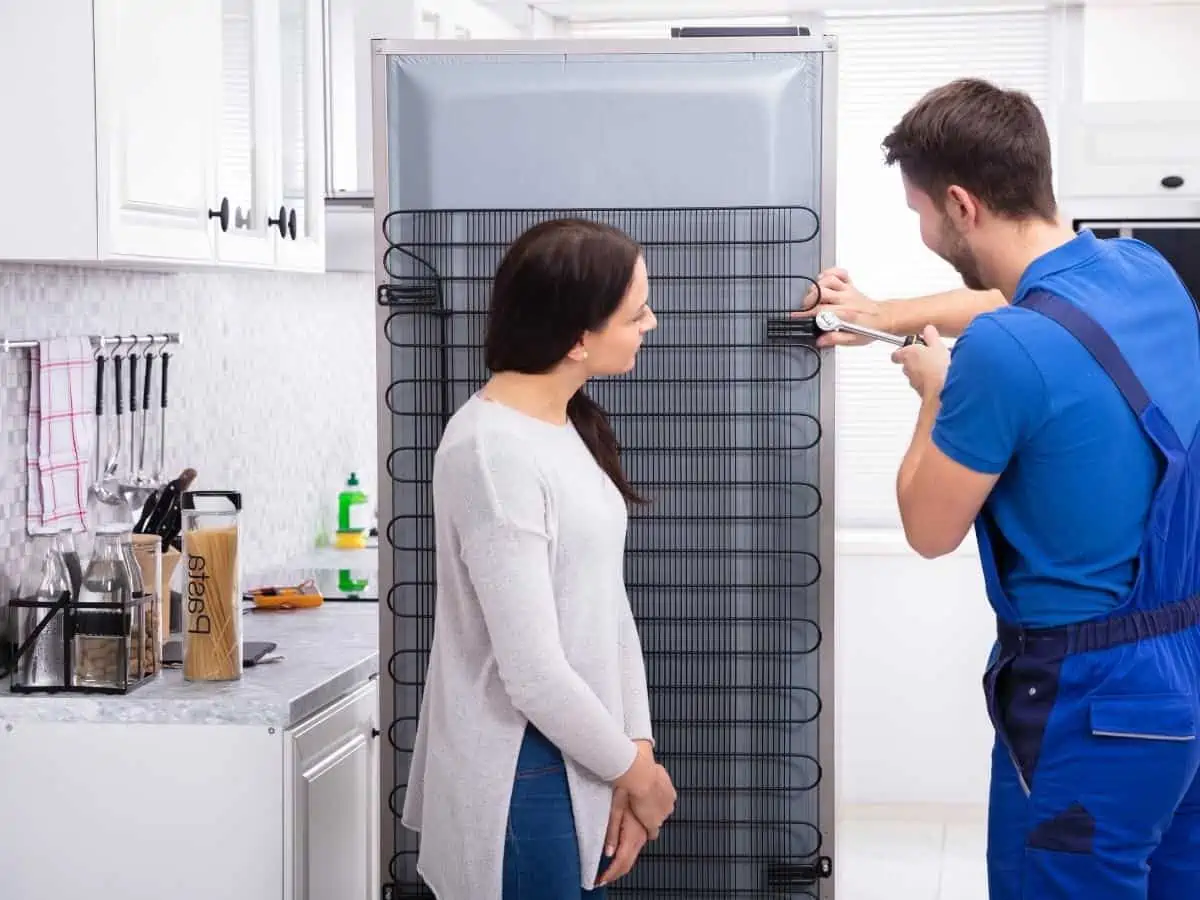
- Are Landlords Required to Provide Refrigerators in Texas?
- Things Considered "Livable" or "Fit for Habitation"
- What Are Landlords Required to Provide in Texas?
- Pros and Cons of Renting a Property with Or Without Appliances
- Type of Apartments That Don't Have Refrigerators
- How to Handle Repairs and Maintenance
- Resources for Tenant Rights and Landlord Responsibilities
Are Landlords Required to Provide Refrigerators in Texas?
Texas state laws do not require landlords to provide refrigerators for their tenants. There is no state law addressing landlord and appliance laws in some states. However, counties and cities may vary.
Every state has different tenant-landlord laws, but they all follow similar premises. For most conditions, the landlords are required to provide everything that will make a home habitable. This generally includes specifics such as working doors, toilets, and electricity.
However, large and small appliances are not included on this list. Believe it or not, landlords in Texas are not required by law to provide refrigerators in apartments or homes. If you’re considering renting a house without a refrigerator, your potential landlord is not breaking the law.
Do Landlords Usually Provide Refrigerators?
Most landlords provide larger appliances such as ovens and refrigerators, making their properties more appealing. No one wants to move into a rental home that doesn’t have a refrigerator– it adds another layer of stress and expense to the moving process.
However, landlords that don’t provide refrigerators aren’t necessarily doing so out of cheapness. Sometimes, it’s an open offer to customize your living space for yourself. You can choose which refrigerator you want and any other large appliances.
If you are in love with an apartment, house, or duplex rental and it doesn’t come with a refrigerator, you can include that as part of your negotiations. Many landlords will buy a bare refrigerator to get you to move in. They’ll be able to use it for future renters as well.
Of course, you can always take the plunge and buy your refrigerator for the apartment. You’ll have to take it with you when you move out or sell it to your landlord at a discounted price.
Things Considered “Livable” or “Fit for Habitation”
In Texas, as in many other states, there are specific requirements that landlords must meet to ensure that their rental properties are considered “livable” or fit for habitation. This concept is often called the “implied warranty of habitability.” Here are key elements that are typically required:
- Structural Integrity: The property must be structurally sound. This includes stable walls, floors, ceilings, and a roof that keeps out water.
- Water and Utilities: Landlords must provide access to running water, including hot water, and ensure that plumbing facilities are in proper working order. This also extends to reasonable arrangements for electricity and gas.
- Heating and Cooling: Rental properties must have adequate heating and, in some cases, cooling systems, especially considering the climate in Texas.
- Sanitation Facilities: Functional sanitary facilities like a toilet, sink, shower, or bathtub are essential. These should be in good working order and maintain proper hygiene standards.
- Pest-Free Environment: The property should be free from rodents, insects, or other pests infestations. Landlords are typically responsible for pest control.
- Safety Features: This includes working smoke detectors, secure locks on doors and windows, and, in some cases, carbon monoxide detectors.
- Trash Receptacles: Proper facilities for trash collection and removal must be provided.
- Environmental Hazards: The property should be free from hazardous materials like lead paint, asbestos, or mold in dangerous quantities.
- Reasonable Repairs and Maintenance: Landlords are responsible for keeping the property in good repair. This includes fixing any broken appliances or systems included with the property and promptly responding to repair requests.
- Compliance with Building and Housing Codes: The property must adhere to local building codes and housing standards, which can dictate specific requirements for ventilation, lighting, and square footage per occupant.
These requirements can vary slightly depending on the local ordinances and state laws. Tenants in Texas facing issues with their rental properties not meeting these standards have legal rights. They can take specific actions, such as reporting to local health or building inspectors, withholding rent, or even terminating the lease in severe cases.
However, tenants need to follow legal procedures and seek legal advice if they find themselves in such situations.
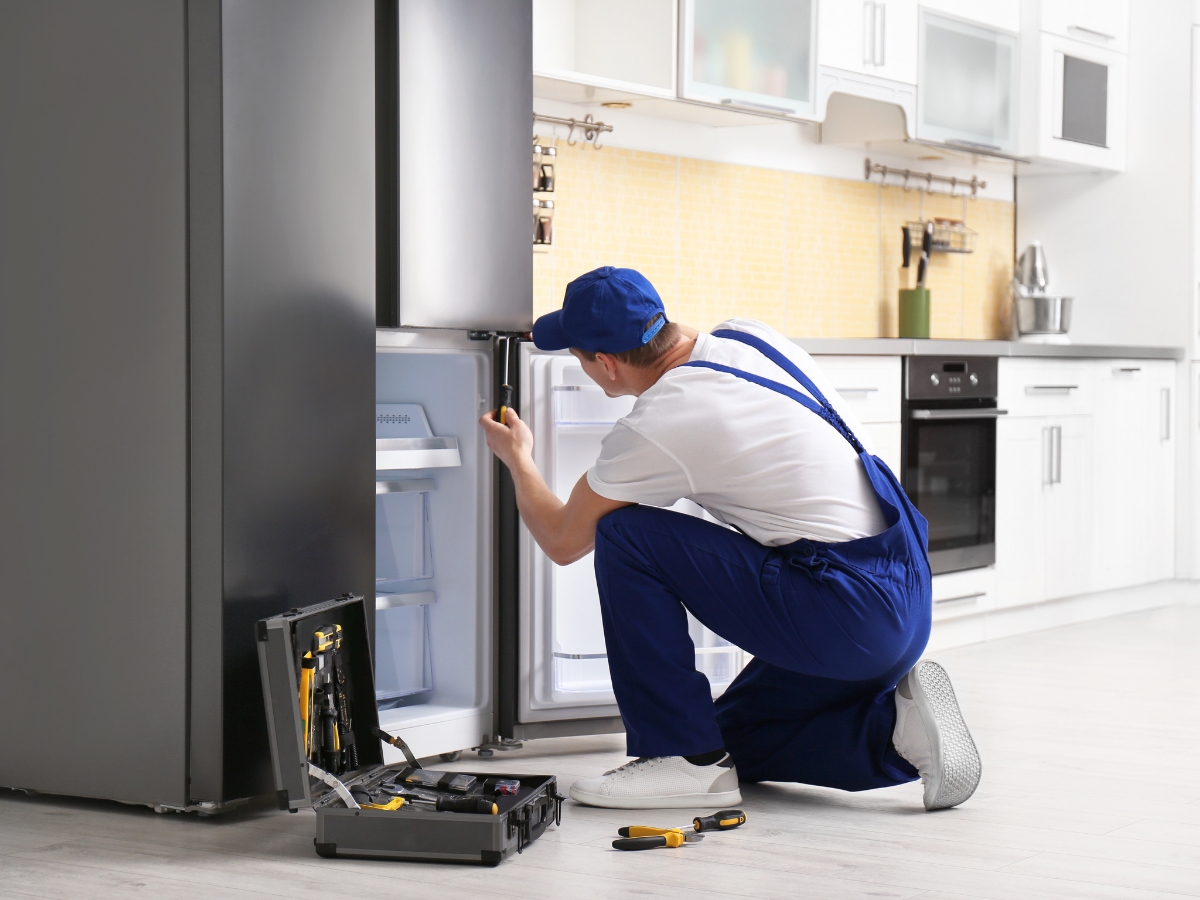
What Are Landlords Required to Provide in Texas?
While landlords are not required to provide a refrigerator, they have a list of necessities every apartment should have. This is for the health and safety of each person living in the apartment or house. Here is a list of what landlords must supply in Texas:
- Locks and other safety measures
- Working electricity and running water
- Regular maintenance and necessary repairs
- Disclosures on all fees and agreements
- Anything that makes the rental property livable and safe.
The main requirement for Texas landlords is providing a habitable space. If a place isn’t safe enough for human life or becomes too unsafe, clients can take legal action against their landlord for neglect of duties.
These requirements are to make a renter’s life livable. Renters have certain rights, just like landlords do, and if they aren’t being met, it’s possible to sue your landlord for breach of contract. While certain appliances aren’t on this list, maintenance and necessary repairs are.
Pros and Cons of Renting a Property with Or Without Appliances
Renting a property with or without appliances provided each has its own pros and cons. These can significantly affect your living experience and finances. Here’s a breakdown:
Renting with Appliances Provided
Pros:
- Convenience: Moving into a property with essential appliances like a refrigerator, stove, dishwasher, and sometimes even a washer and dryer can be very convenient. It saves you the hassle of purchasing and moving these large items.
- Cost-Effective Initially: You save upfront costs since you don’t have to buy these appliances when you move in.
- Maintenance and Repairs: Typically, the landlord is responsible for maintaining and repairing the provided appliances, reducing your responsibilities and potential expenses.
- Ideal for Short-Term Tenants: If you’re planning a short stay or move often, including appliances is more practical and cost-effective.
Cons:
- Higher Rent: Landlords often charge a higher rent for furnished or semi-furnished properties, which includes those with appliances.
- Limited Choice: You must make do with whatever appliances are provided, which might not be your preferred brand, style, or functionality.
- Dependence on Landlord for Repairs: You rely on the landlord to fix any issues, which can be inconvenient if they are slow to respond.
Renting without Appliances
Pros:
- Lower Rent: Properties without appliances can have lower rent, which might be more budget-friendly in the short term.
- Personal Preference: You can choose appliances that meet your needs and preferences regarding size, features, and energy efficiency.
- Investment in Long-Term Assets: Purchasing your appliances is long-term, as you can take them when you move.
- Control Over Maintenance and Repairs: You have more control over maintaining and repairing your appliances, potentially leading to better care and longevity.
Cons:
- Initial Cost: Purchasing appliances can be significant, especially if you must buy multiple items simultaneously.
- Responsibility for Repairs: All repair and maintenance responsibilities (and costs) fall on you.
- Moving Hassles: If you move frequently, transporting large appliances can be a hassle and expensive.
- Resale or Storage Issues: If you move to a furnished place later, you might need to sell your appliances, often at a loss, or pay for storage.
Whether renting with or without appliances is better depends on your circumstances, budget, lifestyle, and how often you move. It’s essential to weigh these pros and cons in light of your situation to make the best decision.

Type of Apartments That Don’t Have Refrigerators
Typically, apartments in Texas come with preinstalled refrigerators. It’s easier for landlords to deal with appliance issues if they’ve paid for the appliances themselves. Having an identical refrigerator in every apartment makes it easier for maintenance men to know what they are dealing with when issues arise.
For the most part, only a few types of apartments don’t have refrigerators included. These are usually either single-room apartments or full-house rentals. Single-room apartments are meager in rent and include communal refrigerators in the common area.
Low-rent apartments that include single rooms are generally set aside for low-income renters who need a temporary apartment until they can set up somewhere more permanent. These housing situations often have communal meals, free food, or a combination of the two to assist with the necessities of life.
The other kind of housing that doesn’t always include refrigerators is a full house rental. While some houses have major appliances, others work more like a home purchase and assume the renters will bring their instruments.
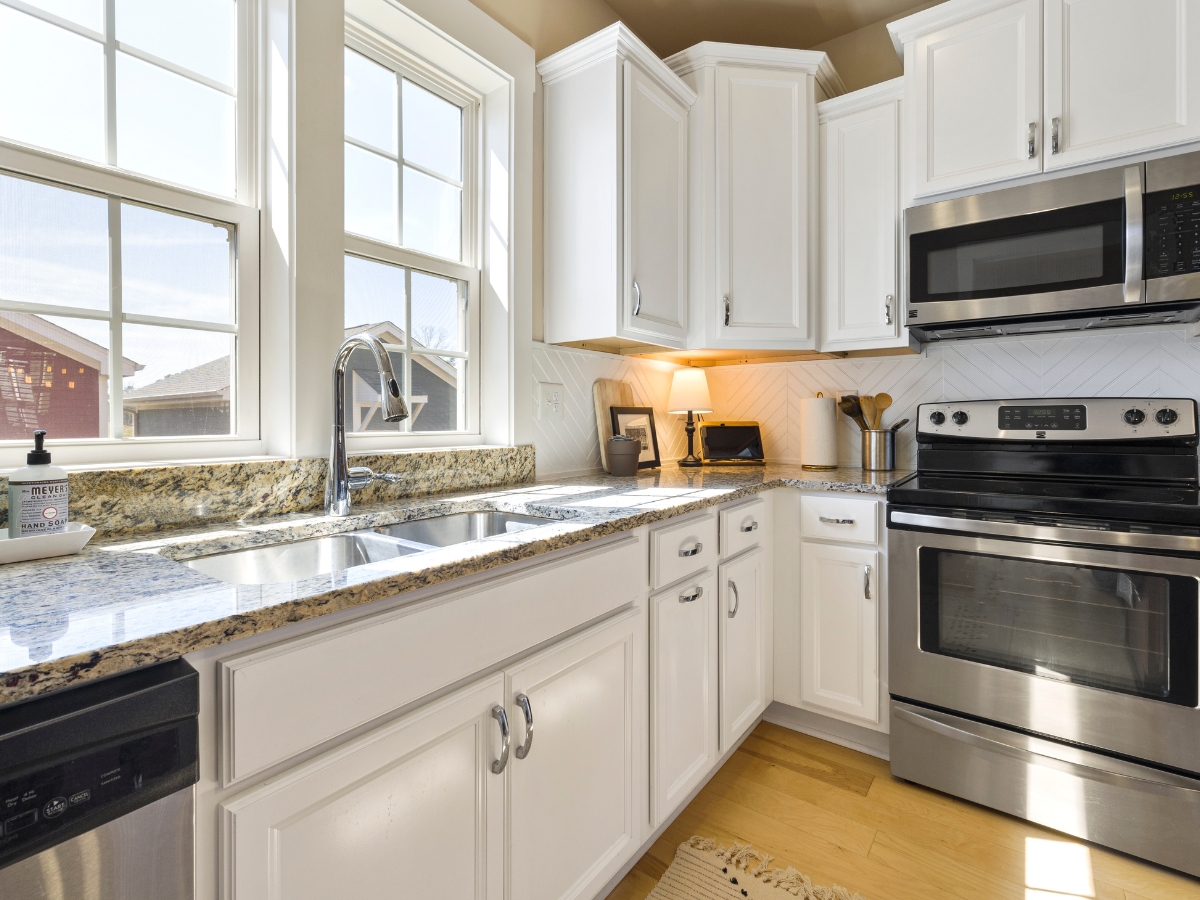
How do Appliances Work on a Lease?
Every set of laws is slightly different, so you should always look up the landlord agreement laws of your city and county. However, whatever the landlord and tenant agree to on a lease becomes legally binding. Any appliances owned by the renter are their responsibility.
Many landlords seek to save money by purchasing refrigerators and other large appliances and giving the renter repair and maintenance responsibility. They will include this clause in the lease, usually inferring that the devices are not part of the rent itself and, therefore, the renter’s responsibility.
A lease is a legally binding agreement between the landlord and the renter. Before you sign your lease, it’s crucial to read it over carefully and understand the terms you agree to. In many cases, landlords are willing to renegotiate specific lease times for your mutual benefit.
If you buy your refrigerator or other large appliance, you might be able to include it under landlord maintenance on your lease. You will have to discuss this with your landlord before the lease is signed and come to an agreement.
Every lease is different, and it’s crucial to read any legal agreement thoroughly before signing it. Whether you end up with a refrigerator or not, knowing your rights and responsibilities and the landlords will be helpful for any potential difficulties.
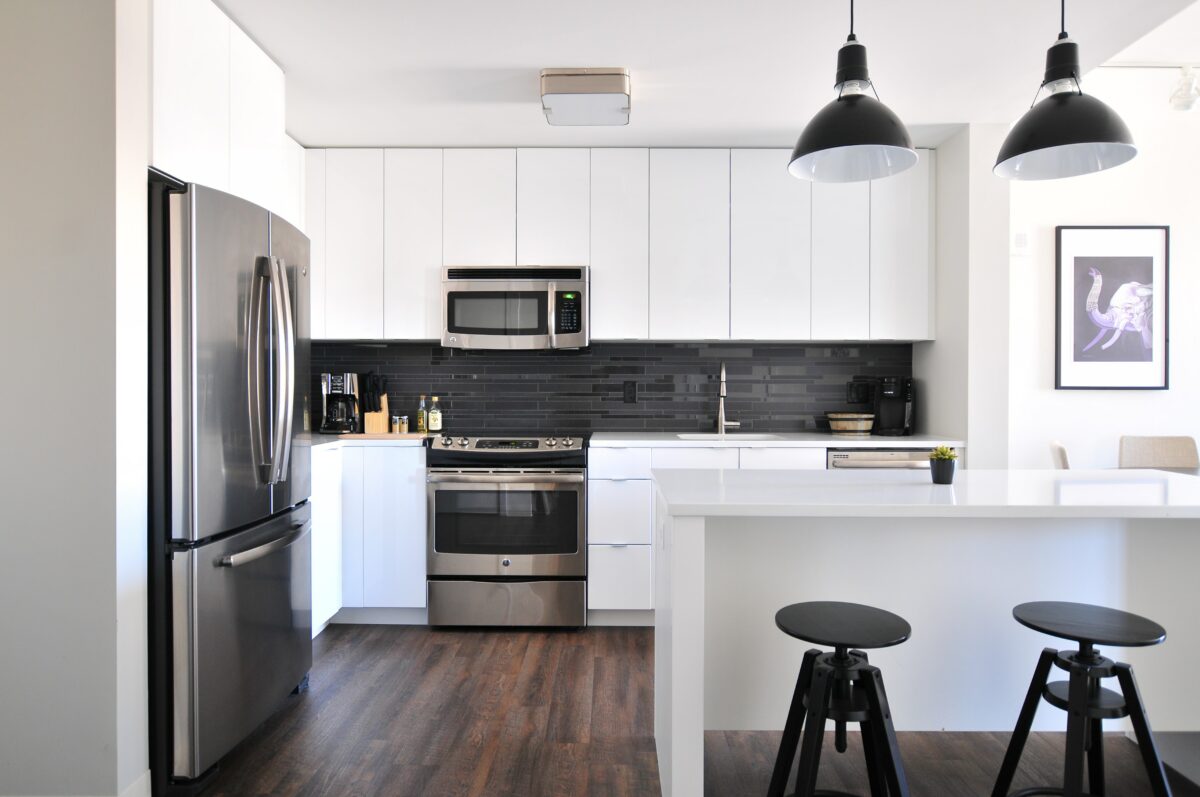
How to Handle Repairs and Maintenance
Handling repairs and maintenance of appliances in a rental property requires clear understanding of responsibilities and proactive communication between the landlord and tenant. Here’s a guideline on how to manage this effectively:
Understanding Responsibilities
- Review the Lease Agreement: The lease should clearly outline who is responsible for appliance repairs and maintenance. Typically, landlords are accountable for ensuring appliances are in good working order, but specifics can vary.
- State Laws and Regulations: Be aware of state laws in Texas, as they may dictate certain responsibilities for landlords regarding appliance maintenance and repairs.
For Tenants
- Report Issues Promptly: If an appliance malfunctions and it’s the landlord’s responsibility, report it immediately. Delays in reporting can sometimes worsen the problem.
- Document Communication: Keep a record of all communications regarding repairs and maintenance. Email or written communication is preferable for this purpose.
- Follow Instructions for Use: Use all appliances according to the manufacturer’s instructions to avoid damage due to misuse.
- Minor Maintenance: Sometimes, minor maintenance like cleaning filters or defrosting the freezer can be the tenant’s responsibility. Check your lease for specifics.
For Landlords
- Respond Quickly: Address repair requests promptly. Delays can lead to further damage and tenant dissatisfaction.
- Hire Qualified Professionals: For repairs, use qualified and, if necessary, licensed professionals. This ensures quality work and can prevent future issues.
- Regular Inspections: Schedule regular maintenance checks to ensure appliances are in good working order. This can prevent larger issues from developing.
- Keep Records: Maintain records of each appliance’s repairs and maintenance activities. This can be helpful for warranty claims and future reference.
General Tips
- Emergency Situations: Have a plan for handling emergency repairs, such as a broken refrigerator or a leaking washing machine.
- Replacement vs. Repair: Consider the age and condition of the appliance. Sometimes, replacing an old, frequently malfunctioning appliance can be more cost-effective than repeated repairs.
- Insurance Considerations: Some appliance repairs might be covered under a homeowner’s or renter’s insurance policy. Check the terms of your insurance for coverage details.
- Communication: Open and respectful communication is key. Misunderstandings about responsibilities can lead to disputes, so clear, documented communication is essential.
By understanding and adhering to these guidelines, landlords and tenants can manage appliance repairs and maintenance effectively, ensuring a smooth and agreeable rental experience.
Resources for Tenant Rights and Landlord Responsibilities
Understanding tenant rights and landlord responsibilities regarding appliances in Texas is crucial for both parties to ensure a fair and legal rental arrangement. Here are some key resources that can provide valuable information and guidance:
Government and Legal Resources
- Texas Property Code: The Texas Property Code (Title 8, Chapter 92) outlines specific rights and responsibilities of tenants and landlords. It’s a primary legal resource for understanding housing laws in Texas. Texas Property Code.
- Texas Attorney General’s Office: Provides information on tenant rights, laws, and protections. They often publish guides that are helpful for understanding legal aspects of tenancy. Texas Attorney General – Tenant Rights.
- Texas Law Help: Offers legal information and resources for tenants, including rights and responsibilities concerning appliances and maintenance. Texas Law Help – Housing.
Educational and Advocacy Groups
- Texas Tenants’ Union: A nonprofit organization dedicated to promoting tenants’ rights and providing resources for tenant advocacy. Texas Tenants’ Union.
- Texas Apartment Association (TAA): Provides resources and information for both landlords and tenants. The TAA website includes guides and FAQs on a range of topics, including appliance maintenance. Texas Apartment Association.
- Legal Aid Organizations: Local legal aid organizations in Texas often provide free or low-cost advice on tenant rights and landlord responsibilities. Examples include Lone Star Legal Aid and Legal Aid of Northwest Texas.
Online Resources
- Nolo: Offers a range of articles and books on tenant rights in Texas, including specifics about appliance maintenance and landlord responsibilities. Nolo – Texas.
- HUD (U.S. Department of Housing and Urban Development): Provides information about renting and rights as a tenant, including state-specific resources. HUD – Texas.
Local Government Resources
- City or County Housing Departments: Many city and county governments in Texas have housing departments or agencies that provide local information on tenant rights and housing regulations.
- University Legal Services: If you are a student, some Texas universities offer legal services that include tenant rights information and advice.
These resources offer a combination of legal information, practical advice, and advocacy support, which can be invaluable in navigating the specifics of tenant rights and landlord responsibilities in Texas, particularly regarding appliance issues in rental properties.
Sources:
- https://rentprep.com/property-maintenance/landlords-provide-appliances/
- https://ipropertymanagement.com/laws/responsibilities-for-appliances
- https://guides.sll.texas.gov/landlord-tenant-law/repairs
- https://www.nolo.com/legal-encyclopedia/is-the-landlord-responsible-appliance-repair.html
Share the post "What to Expect from Your Texas Landlord: An Appliance Guide"
Christian Linden is a seasoned writer and contributor at Texas View, specializing in topics that resonate with the Texan community. With over a decade of experience in journalism, Christian brings a wealth of knowledge in local politics, culture, and lifestyle. He holds a Bachelor's degree in Communications from the University of Texas. When he's not writing, Christian enjoys spending weekends traveling across Texas with his family, exploring everything from bustling cities to serene landscapes.




